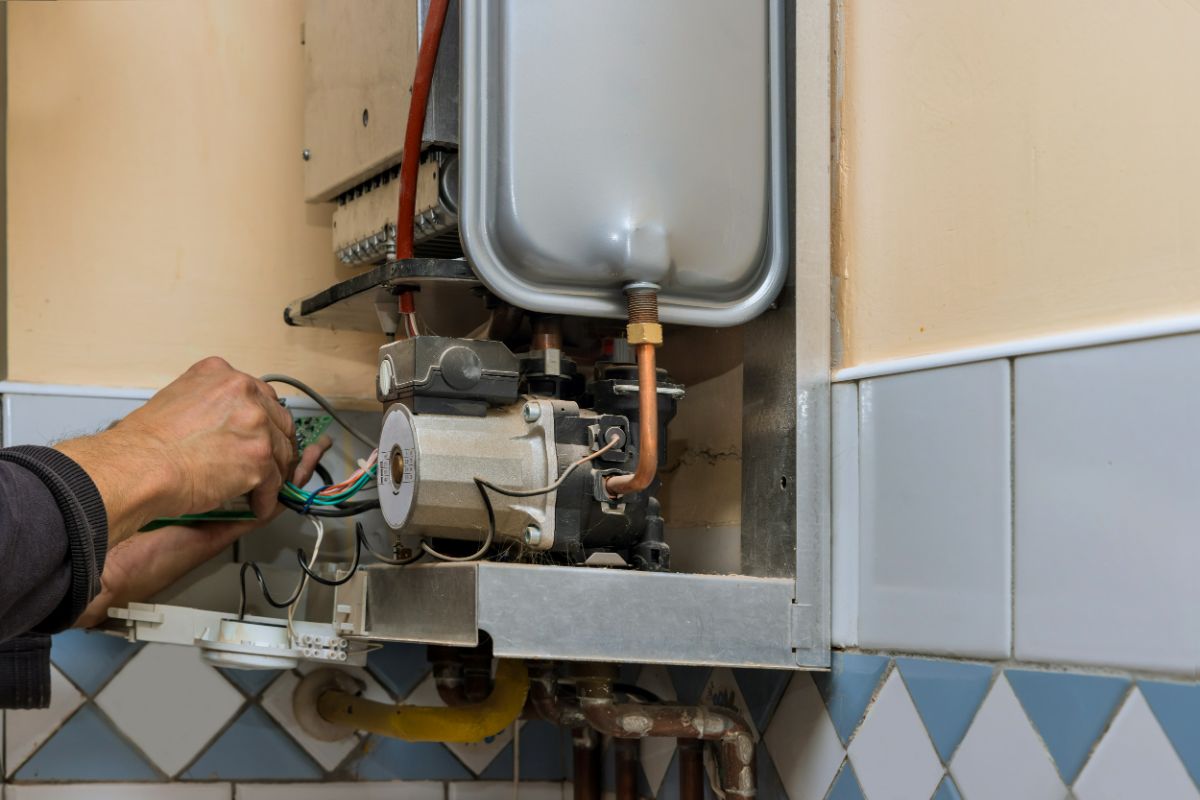Were you looking for insight around What Kind of Maintenance Do Water Heaters Need??

Warm water is important for day-to-day comfort, whether it's for a revitalizing shower or washing recipes. To guarantee your warm water system runs effectively and lasts longer, regular upkeep is crucial. This write-up gives sensible suggestions and insights on exactly how to preserve your home's warm water system to stay clear of disruptions and costly repair work.
Intro
Keeping your home's warm water system might seem complicated, yet with a few easy steps, you can ensure it runs efficiently for years to come. This guide covers every little thing from understanding your hot water system to DIY upkeep tips and understanding when to employ professional help.
Significance of Preserving Your Warm Water System
Normal upkeep not only prolongs the lifespan of your warm water system yet also guarantees it runs efficiently. Overlooking maintenance can bring about reduced effectiveness, greater energy costs, and also early failure of the system.
Indicators Your Hot Water System Demands Upkeep
Knowing when your warm water system needs attention can stop major concerns. Watch out for signs such as irregular water temperature, odd sounds from the heating unit, or corroded water.
Understanding Your Hot Water System
Prior to diving into upkeep tasks, it's helpful to comprehend the standard elements of your warm water system. Usually, this includes the hot water heater itself, pipelines, anode rods, and temperature level controls.
Month-to-month Upkeep Tasks
Normal regular monthly checks can help capture small issues prior to they escalate.
Purging the Water Heater
Purging your hot water heater removes sediment buildup, boosting efficiency and lengthening its life.
Monitoring and Replacing Anode Rods
Anode poles avoid deterioration inside the storage tank. Evaluating and replacing them when broken is important.
Inspecting and Changing Temperature Level Settings
Readjusting the temperature level setups guarantees optimum performance and safety and security.
DIY Tips for Upkeep
You can carry out a number of upkeep tasks on your own to keep your warm water system in top problem.
Checking for Leaks
Consistently examine pipelines and connections for leakages, as these can cause water damage and higher costs.
Evaluating Pressure Alleviation Valves
Evaluating the pressure safety valve ensures it works properly and prevents extreme stress build-up.
Insulating Pipes
Protecting warm water pipes minimizes warmth loss and can save energy.
When to Call a Professional
While DIY upkeep is valuable, some concerns require expert expertise.
Complex Problems Needing Specialist Help
Examples include significant leakages, electric troubles, or if your water heater is regularly underperforming.
Regular Specialist Upkeep Conveniences
Professional maintenance can consist of comprehensive evaluations, tune-ups, and guaranteeing conformity with safety and security criteria.
Conclusion
Regular maintenance of your home's hot water system is essential for performance, longevity, and cost financial savings. By adhering to these pointers and recognizing when to seek expert assistance, you can make sure a trustworthy supply of warm water without unforeseen interruptions.
How to Maintain and Troubleshoot Your Heat Pump Water Heater
Know Your Water Heaters Error Codes and How to Clear Them
If your unit is WiFi-enabled, pay attention to the notifications your water heater system sends you and make sure to read and investigate error codes as soon as possible. If your machine has an error code readout on the unit, use your owner’s manual for the hot water heater and find out what the codes mean and how they might be affecting your water heating system. Follow the manufacturer’s directions to assess the issue and clear the code, or call a licensed plumber to take care of that for you.
Change Your Filters Monthly or As-Needed
Heat pump water heaters come equipped with an air filter, usually on the top of the unit where the water heater pulls air into the compressor. Check the filter every few months (put a reminder in your smartphone to make sure you don’t forget!). This will keep peak air flowing into your unit, helping it to work as efficiently as possible and resulting in energy savings over time.
Clean the Condensate Lines
Heat pump water heaters have a condensate drain. As the unit dehumidifies the surrounding area, the moisture has to go somewhere! Make sure to clean this condensate line every year to ensure it doesn’t get backed up with sediment or mold.
To clean the condensate lines, pour a cup of bleach in the access opening of the unit to kill any mold or mildew. Check that the bleach or water flows freely out of the lines, and unclog the lines if needed.
Flush Your Heat Pump Water Heater Annually
Heat pump water heaters are also sometimes referred to as hybrid heat pump water heaters. This is because they contain a backup heating electric heating element inside the tank: the same kind of anode rods used in traditional electric water heaters. That anode rod can become corroded over time from the minerals in your water, and it can begin to decay, break entirely, or heat less efficiently as it becomes corroded. One way to minimize or avoid this corrosion is by flushing your heat pump water heater annually. Just like flushing standard electric or gas water heaters, flushing your water heater is something that any homeowner can DIY if they have a few basic tools and some gumption.
https://www.waterheatersnow.com/blog/how-to-maintain-and-troubleshoot-your-heat-pump-water-heater

I'm certainly very interested by Tips on Maintaining a Water Heater and I am hoping you enjoyed reading my entry. Don't hesitate to take the time to promote this article if you appreciated it. We cherish your readership.
Top Article